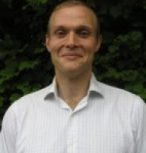DNA reveals the past and future of coral reefs
New DNA techniques are being used to understand how coral reacted to the end of the last ice age in order to better predict how they will cope with current changes to the climate. James Cook Univer

From 2005 to 2022, the main node of the ARC Centre of Excellence for Coral Reef Studies was headquartered at James Cook University in Townsville, Queensland (Australia)








Abstract: Over the past few years, Microsoft Research and the United Nations Environment Programme World Conservation Monitoring Centre (UNEP-WCMC) have built a global ecosystem model for terrestrial and marine ecosystems. Called the Madingley model, it captures the broad-scale structure and function of ecosystems around the world by simulating processes — including feeding, reproduction and death — that drive the distribution and abundance of organisms. From the relationship between the mass of individual organisms and how long they live, or the effects of human perturbations such as hunting, to the distribution of biomass across Earth, the model’s outputs are broadly consistent with current understanding of ecosystems. Global ecosystem models such as the Madingley model could radically improve understanding of the biosphere and help inform policy decisions about biodiversity and conservation.
Biography: Mike Harfoot is based at UNEP-WCMC and Microsoft Research, Cambridge, UK. Mike studied chemistry and computer science at Bristol University before completing a PhD in atmospheric chemistry modelling at Cambridge University. Across his research Mike has been applying dynamic mechanistic modelling approaches in addition to statistical analysis. Mike’s interests are in modelling whole ecosystems within an earth systems context, natural limitations and patterns that emerge from fundamental ecological processes and how ecosystems and the services they provide might respond under pressures arising from human activities.
New DNA techniques are being used to understand how coral reacted to the end of the last ice age in order to better predict how they will cope with current changes to the climate. James Cook Univer
A new study on the effects of climate change in five tropical countries has found fisheries are in more trouble than agriculture, and poor people are in the most danger. Distinguished Profess
James Cook University researchers have found brightly coloured fish are becoming increasingly rare as coral declines, with the phenomenon likely to get worse in the future. Christopher Hemingson, a
Researchers working with stakeholders in the Great Barrier Reef region have come up with ideas on how groups responsible for looking after the reef can operate more effectively when the next bleaching
Abstract: As marine species adapt to climate change, their heat tolerance will likely be under strong selection. Individual variation in heat tolerance and its heritability underpin the potential fo
Abstract: The Reef Ecology Lab in KAUST’s Red Sea Research Center explores many aspects of movement ecology of marine organisms, ranging from adult migrations to intergenerational larval dispersal
Abstract: Macroalgal meadows are a prominent, yet often maligned component of the tropical seascape. Our work at Ningaloo reef in WA demonstrate that canopy forming macroalgae provide habitat for ad
Abstract: Sharks are generally perceived as strong and fearsome animals. With fossils dating back at least 420 million years, sharks are not only majestic top predators but they also outlived dinosa
Abstract: Connectivity plays a vital role in many ecosystems through its effects on fundamental ecological and evolutionary processes. Its consequences for populations and metapopulations have been
Abstract: Evolution of many eukaryotic organisms is affected by interactions with microbes. Microbial symbioses can ultimately reflect host’s diet, habitat range, and even body shape. However, how
Abstract: The past few years have seen unprecedented coral bleaching and mortality on the Great Barrier Reef (GBR) but the consequences of this on biodiversity are not yet known. This talk will expl